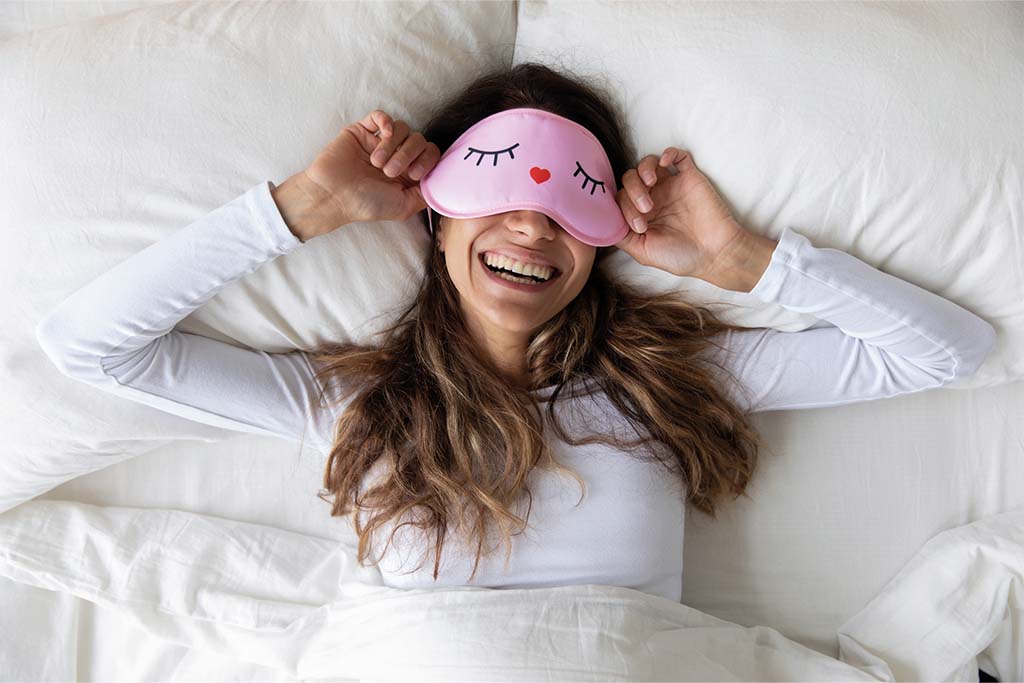Health & Wellbeing: Sleep
By
3 years ago

Rise to Shine
Embedding good sleep habits now will help teenagers’ physical and mental health, says Canford School’s Melissa Clinton

When I began research into sleep patterns among young people,
I discovered some worrying facts. According to experts, 68 per cent of teens do not get enough sleep on a school night (The Sleep Charity) and 75 per cent of those with mental health problems say they originated in Year 10, with sleep having a massive impact on this (Mental Health First Aid).
Hospital admissions for sleep disorders, says the NHS, have also risen exponentially from 6,000 in 2012 to over 11,000 by December 2019. And the Japanese government believes sleep problems and insomnia are the most serious social refractory diseases of the 21st century.
Yet, when I began to look for answers that I might use at Canford, the most powerful remedies were not – as one might have feared – those available on prescription. Indeed, research has shown increased evidence for a non-pharmacological approach, with a focus on addressing the behavioural and cognitive approach through education.
The result of my investigation led to the creation of the Sleep Programme at Canford, which has just launched – something we believe to be truly unique to our school.
This programme has been designed to be holistic, empowering through education, supporting different areas and stages of a teenager’s journey through the school. We plan for it to be something all our pupils experience as part of their core Canford experience.
Why is it vital? Good sleep patterns are a fundamental area of health that provides increased concentration, improved productivity, more accurate hand-eye coordination and more stable emotional regulation. Our sleep programme will act in reality much like an injury prevention programme.
Moreover, we are using our role as educators to empower our pupils with the knowledge so that they can in time make more informed, better choices on sleep health and carry these life skills onwards into the world
of employment.

So how does it work? The Sleep Programme covers core areas such as why sleep matters, the science of sleep and why sleep issues occur plus, of course, practical strategies and methods to improve sleep.
Delivered through Houses by Designated Sleep Champions, tutors and matrons have been trained to support sleep health in our pupils across every year group. So there will be a designated person that pupils know they can talk to about sleep issues or concerns.
Base line testing will be completed for all pupils at the start of the year using the Teen Sleep Index provided by the Sleep Charity. This index will be repeated throughout each term to help monitor sleep health objectively.
Pupils joining the school in September will also be sent information in advance about the transition to senior school, particularly for those new to boarding school life, and ways to develop positive sleep patterns and start aligning body clocks after the summer holidays.
We know the programme is going to be popular. There has been an enthusiastic response from parents who are pleased that the school is supporting pupils on important aspects of wellbeing.
One, who is also a local GP, said: ‘Sleep problems have become an overwhelming issue in our society and its impact is something I am dealing with on a day-to-day basis.’
Among the staff, who received support and training via the Sleep Charity, we hope the Canford Sleep Programme will stop issues with sleep being ignored or pupils feeling they ‘just have to get on with it’. We want to ensure we enrich our pupils’ wellbeing with the knowledge and understanding on the science and importance of sleep, so that they will feel empowered to make better choices around sleep health and hygiene.
These are vital life skills that they can carry through with them in future years.
Melissa Clinton is joint head of wellbeing at Canford School, Dorset
READ MORE FROM SPRING SUMMER 2022
H&W: Move | H&W: Eat



